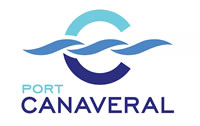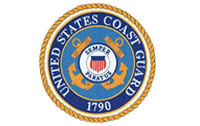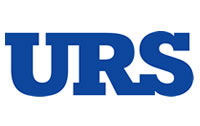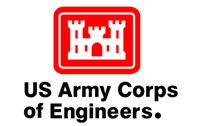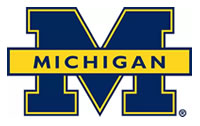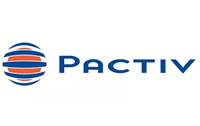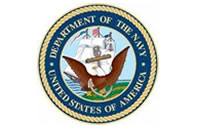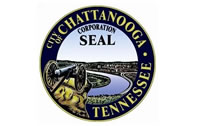A good supervisor will know the organization’s policy or procedures regarding how to deal with performance problems. A really good supervisor has the interpersonal skills to address issues in a proactive manner before issues progress into disciplinary situations. The great supervisors will first determine if there is some sort of capability issue. Has the person been trained? Has the person been provided with the necessary tools? Does the person have a learning disability or physical issues that make things more difficult for this person?
A great leader will work with the person to identify and resolve capability issues before assuming the issue is due to “motivation.” Saying someone has a motivation issue is another way of saying the person could perform, but chooses not to. After all reasonable capability issues have been addressed, through training, coaching, or other accommodations, and performance continues to be substandard, it becomes appropriate to initiate consequences for continued poor performance.
The supervisor now knows this is a motivation issue, not a capability issue. Being a good supervisor, he has already reviewed and knows the disciplinary policy for the plant. Disciplinary policies typically require documented verbal reprimands, followed by written reprimands. If there is still non-compliance, the next step is to give the person an unpaid day off, and if there is another incident the tradesman will be terminated.
So the supervisor documents three verbal reprimands and twice hands the tradesman written reprimands — more lenient than the policy requires. The tradesman signed the written reprimands as an indication that he was reprimanded in writing. Unfortunately, the tradesman refused, again, to complete the work orders correctly. The supervisor talks with his manager, and they agree that the next step is a day off.
However, the HR policy on discipline states that, before an employee can be given a day off or terminated, the HR manager has to review the situation and make the final decision. The HR director has a different frame of reference. The HR manager often is pressured by other considerations. Will the position be difficult to fill? Will there be costs associated with recruiting/training new hires? Will unemployment insurance costs rise? There’s a risk of a lawsuit if someone is actually given time off or terminated, especially if the application of the policy has been inconsistent. The bottom line is that HR is not simply disregarding policy; it is just trying to balance many concerns.
When HR managers do not support appropriate disciplinary actions in accordance with the existing disciplinary policy, they are really saying that the policy is out of date. Out-of-date policies result in unsupported supervisors. If there are no consequences of underperformance, a critical tool for supervisors is missing.
How can this be resolved? The disciplinary policy must reflect what the HR manager will consistently support. Even if a new policy is more lenient, it can actually be more effective if it is consistently applied. Conversely, supervisors and managers will need to have the fortitude to consistently and directly address poor performers.
Redesigning disciplinary policies requires collaboration and executive oversight. Collaboration is needed so that diverse interests within the organization can be accommodated. Executive oversight is needed to ensure adequate authority for the resulting policy and to ensure accountability rests where it should — with senior leadership.
Organizations ask a lot of their managers and supervisors; they are the people who transform strategy into action through leading and managing people. Leading people is a tough job that is tougher when disciplinary actions don’t match the policies. Executive leaders need to ensure that there is an effective balance among the competing issues. But most of all, the executive leaders must ensure that supervisors and managers have the tools they need to effectively lead their workforces. Supervisors deserve clear, consistent support.
 Tom Moriarty, P.E., CMRP is president of Alidade MER. He is a former Coast Guardsman, having served for 24 years; an enlisted Machinery Technician for nine years; earned a commission through Officer Candidate School; and retired as a Lt. Commander. During his final year of service, 2003, Tom was selected as the U.S. Coast Guard’s Federal Engineer of the Year; an award sponsored by the National Society of Professional Engineers (NSPE). He is a member of the Society of Maintenance and Reliability professionals, the past Chair of the American Society of Mechanical Engineers (ASME), Canaveral Florida Section, and a member of the ASME Plant Engineering and Maintenance (PEM) Division. He has a B.S. in Mechanical Engineering from Western New England College, and an MBA from Florida Institute of Technology; Professional Engineer (PE) licensed in Florida and Virginia, Certified Maintenance and Reliability Professional, various credentials in management and reliability fields. He can be reached at [email protected]. Tom Moriarty, P.E., CMRP is president of Alidade MER. He is a former Coast Guardsman, having served for 24 years; an enlisted Machinery Technician for nine years; earned a commission through Officer Candidate School; and retired as a Lt. Commander. During his final year of service, 2003, Tom was selected as the U.S. Coast Guard’s Federal Engineer of the Year; an award sponsored by the National Society of Professional Engineers (NSPE). He is a member of the Society of Maintenance and Reliability professionals, the past Chair of the American Society of Mechanical Engineers (ASME), Canaveral Florida Section, and a member of the ASME Plant Engineering and Maintenance (PEM) Division. He has a B.S. in Mechanical Engineering from Western New England College, and an MBA from Florida Institute of Technology; Professional Engineer (PE) licensed in Florida and Virginia, Certified Maintenance and Reliability Professional, various credentials in management and reliability fields. He can be reached at [email protected].
|
|
| Subscribe to the Human Capital RSS feed | |


